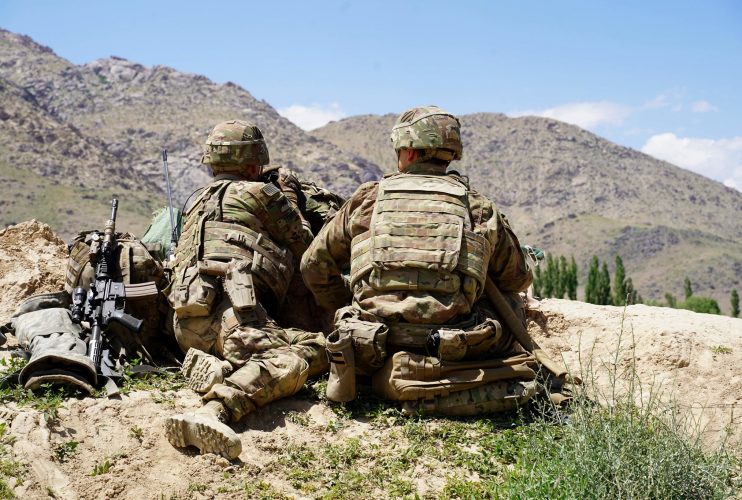By J.M. Phelps (One News Now)
A counter-terrorism and armed conflict specialist provides some insight to the U.S.-Taliban peace negotiations, as President Trump attempts to bring the country one step closer to a historic agreement that has been proposed to end America’s longest war.
Animesh Roul is a founding member and executive director of the New Delhi-based policy research group Society for the Study of Peace and Conflict (SSPC). As a specialist in counterterrorism, terror financing, and armed conflict and violence in South Asia, OneNewsNow spoke to the India-based scholar about the Taliban peace deal negotiation and President Trump’s subsequent troop withdrawal from Afghanistan.
In the exclusive interview, Roul shared four reasons why a U.S. decision to begin troop withdrawal would not be a wise decision at this time. First, he says, withdrawing would give the Taliban an “upper hand” when U.S. and allied forces are no longer there.
Next, Roul warns a “civil war-type” of conflict because the Taliban wants “power and territory,” and will never stop seeking both.
Roul makes a third point, suggesting the Taliban could “resort to violence” after the withdrawal of U.S. troops, and years after a peace deal is made the terrorist group could overthrow the elected Afghanistan government.
In addition, he argues that a lack of “robust international commitment” from places like Qatar, Pakistan, Iran, and other central Asian neighbours would make it difficult to control the region and allow the Taliban to reign again.
The long-running war against the Taliban, now nearing two decades, has claimed the lives of approximately 2,300 troops in the U.S. armed forces and wounded another 20,500, The Independent newspaper reported late last year.
Finally, the SSPC executive director says the Afghan government and its armed forces and police agencies — under the present or any other elected Afghan government — “[would require] support from neighbouring countries and the international community to be able to withstand Taliban violence.”
The expert also notes other outcomes, which result from a troop withdrawal. These would include the potential for a prisoner exchange program; a decrease in human and financial loss; and an end to America’s longest war.
While there could be a “reduction of violence and deaths” in Afghanistan for some time, there is no guarantee for long, he observes.
“The peace deal can be effective only if the Taliban has lion share and is allowed to keep its turf and influence,” Roul determines.
As a result, he also states that the Afghan government’s agreement to any deal between U.S. and Taliban is “vital.”
The government must recognize the importance of keeping the Afghan people secure, Roul emphasizes. “Therefore, any peace deal should accommodate the Afghan people and their interests, not the Taliban’s interests.”
In his concluding thoughts, Roul points toward Pakistan’s government, which he says has been playing a “real tactical game” during the peace process, especially since Pakistan has “complicated ties” with both the Afghan government and the Taliban.
Pakistan has always been vocal about the peace process but the South Asian country also supports Taliban proxies in Afghanistan.
“Pakistani intelligence agencies have nurtured and strengthened Taliban leadership and its ally Warlords in Afghanistan for decades,” he adds. As a result, he says Pakistan’s role with the Taliban and the country’s assistance in managing the overall conflict in Afghanistan is crucial.
Roul points out Pakistan’s role is especially critical in the fight against Al Qaeda forces in Pakistan and Afghanistan.
“The fact is,” he emphasizes, “the strong ties between both groups have been largely ignored in the Al Qaeda-Taliban discourse.”
J.M. Phelps is a counter-terrorism specialist, suicide bombing expert, and freelance journalist, focusing on national security for OneNewsNow. He is also editor and publisher of the website Lantern of Liberty.
Originally published by One News Now on Wednesday, February 26, 2020.
This column is printed with permission. Opinions expressed in columns published by Lantern of Liberty are the sole responsibility of the article’s author(s), or of the person(s) or organization(s) quoted therein, and do not necessarily represent those of the staff or management of, or advertisers who support Lantern of Liberty.

